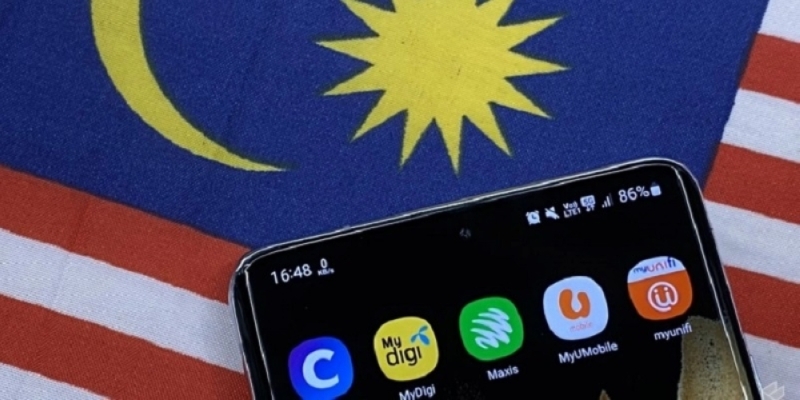
GSMA Intelligence released a report highlighting that Malaysia’s 5G adoption rate is behind its neighbours at only 1 per cent as of December 31, 2022. ― SoyaCincau pic
KUALA LUMPUR, April 29 ― Global System for Mobile Communications Association (GSMA) has reiterated calls for Malaysia to enable 5G infrastructure competition by allowing telcos to launch their own 5G networks. This comes after GSMA Intelligence released a report highlighting that Malaysia’s 5G adoption rate is behind its neighbours at only 1 per cent as of December 31, 2022.
In an interview with Free Malaysia Today, GSMA’s Asia Pacific head Julian Gorman said the government should have a responsive and flexible policy, and reinstate “technology neutrality” to enable mobile network operators to provide services to consumers without constraints or prescriptions on the choice of equipment and infrastructure. He added that infrastructure competition is crucial to foster innovation, enabling Malaysia to compete with its regional peers, such as India and Indonesia.
Gorman said, without competition, the incentive and motivation for innovation and investment that explore the boundaries of 5G’s potential in Malaysia will lag behind regional peers. When asked about the possibility of a second 5G network in Malaysia, Gorman said it is a step in the right direction as having the involvement of one or more telcos will speed up 5G deployment as the second network would have access to existing infrastructure and established supply chains and vendor relations.
Under the new administration led by Anwar Ibrahim, the government now aims to expedite 5G deployment with the goal of achieving 80 per cent 5G population coverage by the end of 2023, which is one year ahead of DNB’s original timeline.
As of March 31, 2023, the Communications and Digital Ministry said Malaysia’s 5G coverage has covered 54.7 per cent of populated areas with approximately 4,400 5G sites. To achieve 80 per cent 5G population, DNB has to roll out about 3,100 sites in the remaining nine months of the year.
In a recent interview, Gorman told us that the true success of 5G isn’t population coverage. While it is admirable to aim to roll out 5G to reach 80 per cent population coverage in a very short time, the priority should be looking at adoption, innovation and use cases that can transform the industry. He said Malaysia’s ambition is to be a regional leader but its neighbours such as Thailand and Singapore have been developing new innovations such as 5G-enabled smart hospitals, smart ports and highly automated car manufacturing facilities.
The review of Malaysia’s 5G deployment through a Single Wholesale Network was supposed to be completed by the end of March 2023, however, the government has yet to make a decision on the next steps. At the moment, DNB remains the sole entity for 5G deployment and it is effectively a monopoly for 5G infrastructure. The technology neutrality of mobile spectrum was been revoked by the previous administration, preventing telcos from using their allocated spectrum to offer 5G services.
At the moment, five telcos in Malaysia are offering 5G services through access agreements with DNB. Maxis is the sole telco that has yet to sign the 5G access agreement with DNB as it waits for the government to conclude its review. ― SoyaCincau